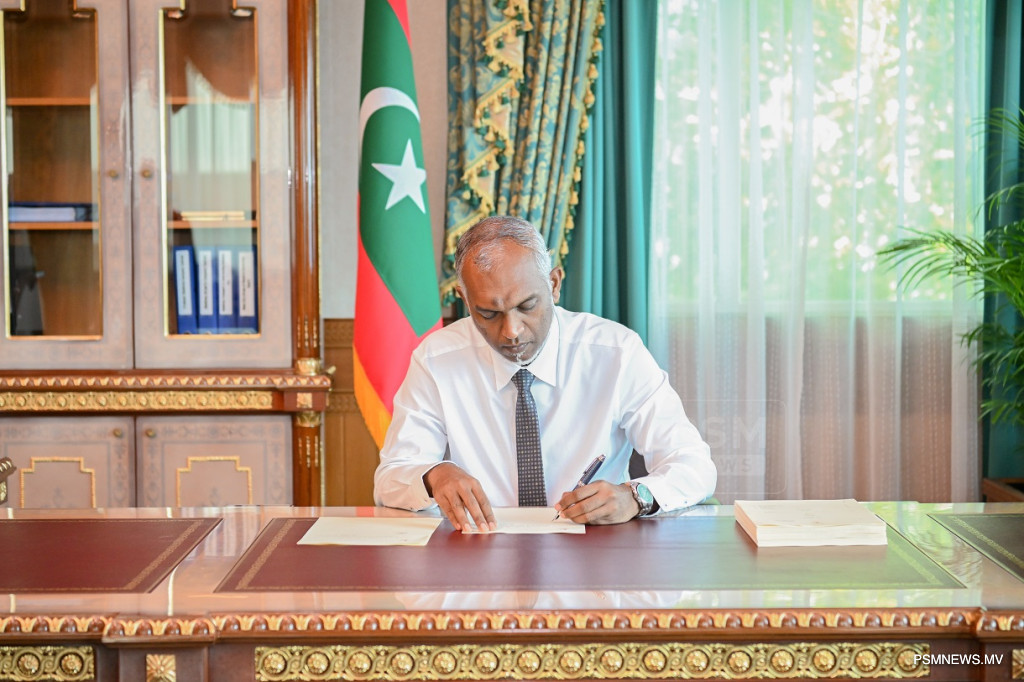
President Dr Mohamed Muizzu on Sunday officially ratified an amendment to the Higher Education and Training Act, a crucial legislative move that significantly alters the requirements for colleges seeking university status in the Maldives.
The amendment, which immediately becomes law, reduces the minimum operational period required for a college to convert into a university from 20 years to 15 years, a change set to open the door for colleges that has been operating for this specific duration.
The amendment, moved by ruling party lawmaker for South Maafannu Abdullah Rifau, was approved by the Parliament last Wednesday before being sent to the President for ratification.
The primary objective of the amendment is to broaden access to tertiary education and facilitate the provision of quality university education across the nation, expanding the current university landscape which currently includes only the Maldives National University (MNU) and the Islamic University of Maldives (IUM).
Historically, the law mandated that an institution must have functioned as a college for at least two decades before qualifying for university registration. The new amendment formally cuts this waiting period by a quarter. While the amendment primarily targets domestic institutions, the law’s existing provision, allowing establishments registered and recognised as a university by a foreign government for 10 years to register locally, remains in effect.
Beyond this primary change, the ratified amendment introduces detailed and stringent prerequisites a college must satisfy to apply for conversion. These requirements focus heavily on academic depth, infrastructure, and international standing. Most notably, applicants must demonstrate substantial academic capacity, including running programmes at Maldives National Qualifications Framework Levels 7 and 9 in at least three distinct fields.
Critical institutional metrics now include a minimum enrollment of 1,000 students in programmes at Level 7 and above, and a commitment to research excellence, demonstrated by experience conducting international research with foreign universities and organisations.
Additionally, the college must be an internationally rated or ranked institution, hold membership in international university and quality assurance organisations for at least five years, and ensure that a minimum of 10 percent of its academic staff teaching at the collegiate level hold PhD credentials.
With President Dr Muizzu’s ratification, the amendments to the Higher Education and Training Act are now formally in force, creating a new regulatory framework designed both to expedite the growth of tertiary institutions and uphold rigorous standards for university conversion.
